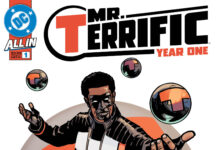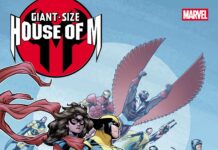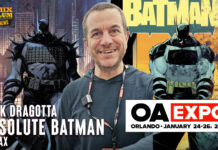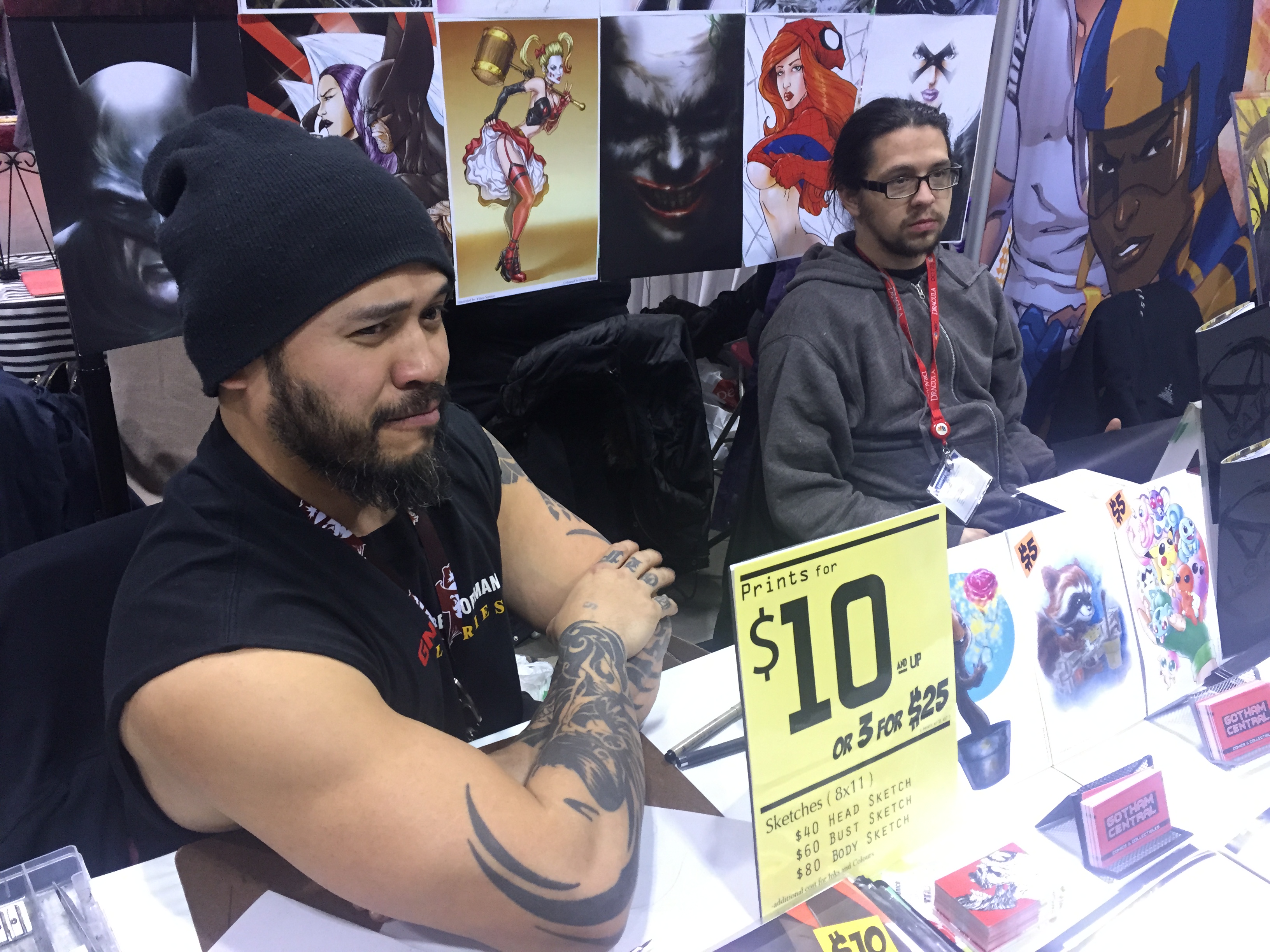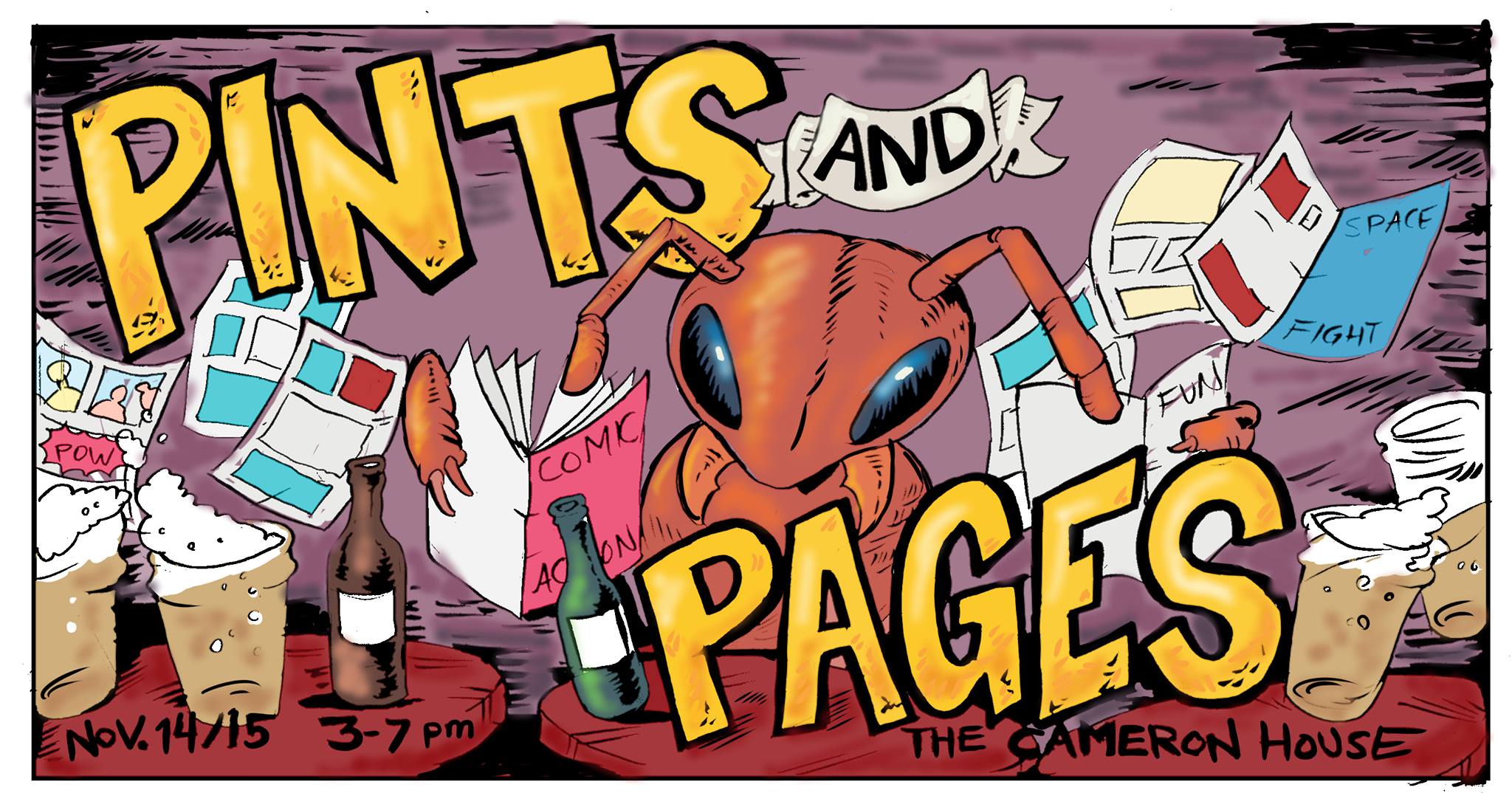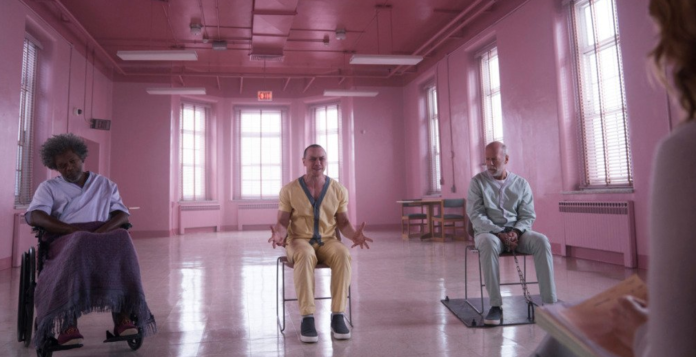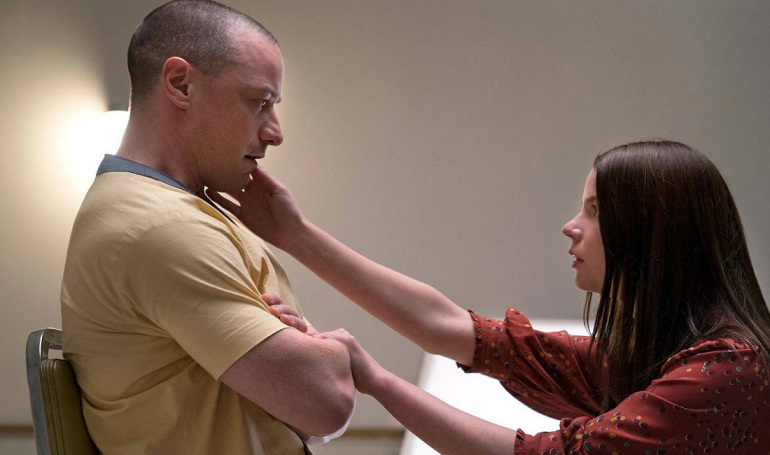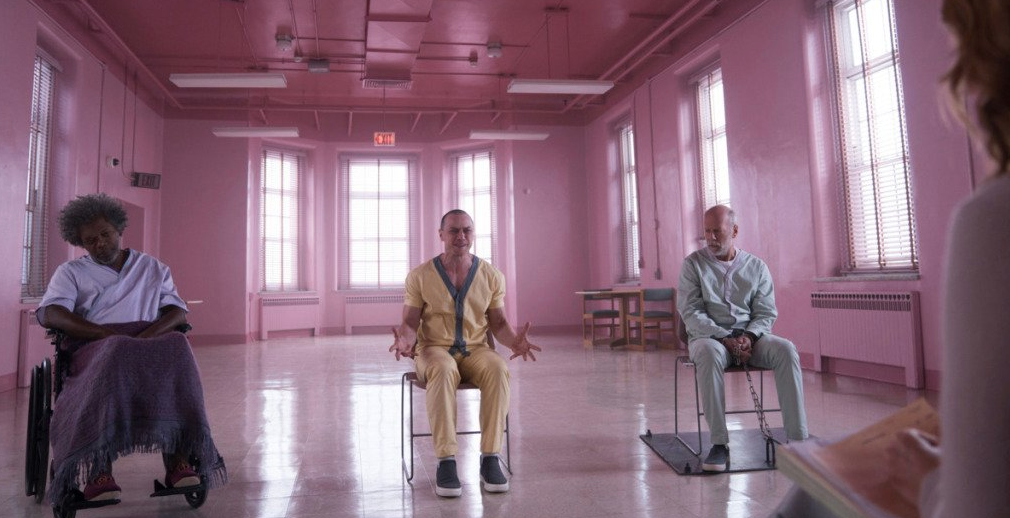 There is a scene in Glass where two teens in a comic shop discuss the role of masterminds in superhero tales. As one of the teens points out, the mastermind usually has everyone looking one way when their plan is always about something else. In many ways this sums up both Glass and director M. Night Shyamalan’s career overall. Shyamalan’s love for twists has frequently had viewers looking at his waving left hand as he prepares to hit them with his right.
There is a scene in Glass where two teens in a comic shop discuss the role of masterminds in superhero tales. As one of the teens points out, the mastermind usually has everyone looking one way when their plan is always about something else. In many ways this sums up both Glass and director M. Night Shyamalan’s career overall. Shyamalan’s love for twists has frequently had viewers looking at his waving left hand as he prepares to hit them with his right.
However, what the teens in the shop neglect to mention is that the mastermind often gets tangled in their own overly complicated web. Their need to be the smartest person in the room ultimately leads to their downfall. Much like iconic brainiac villains in comics, Glass tries to out smart the audience and trips over its own feet when zigging and zagging unnecessarily.
The result is a film that is equally problematic and fascinating at the same time. Nineteen years after discovering that he has superpowers, former security guard David Dunn (Bruce Willis) has set up a business with his son Joseph (Spencer Treat Clark) that specializes in home security. The store is also a front that allows David to prowl the streets as the rain poncho wearing hero The Overseer, as he is called online. Serving his brand of vigilante justice on those who deserve it, and evading the authorities in the process, David is determined to find a group of cheerleaders who have gone missing.

When David locates the young women and their abductor Kevin Wendell Crumb (James McAvoy), who has twenty-four personalities which are referred to as “The Horde,” his routine rescue mission takes an unexpected turn when both he and The Horde find themselves locked up in the same psychiatric institution that is holding David’s arch nemesis Elijah Price aka Mr. Glass (Samuel L. Jackson). There they meet Dr. Ellie Staple (Sarah Paulson) a doctor who has three days to convince them that their beliefs of superhero grandeur are nothing more than fantasies which shield them from traumatic events of their past.
As David and The Horde begin to question what is real and what is delusion, Mr. Glass sets a plan in motion to utilize The Horde’s biggest asset – the being known as “The Beast”.
When Shyamalan made the drama Unbreakable, still one of the greatest superhero films ever made, back in 2000 the world was not saturated with comic book movies like it is now. He was able to educate the unindoctrinated on the tropes of comic book tales, while still crafting an engaging origin story. By the time 2016’s Split rolled around he showed that our fascination with horror movie monsters, especially those in human form, was no different from our obsession with villains like The Joker or Lex Luther.
While it is not surprising that Glass is not your traditional supervillain team-up movie, Shyamalan’s insistence on holding the audience’s hands through the tropes of team-up stories is. This is evident in the problematic climax which frequently pauses the action for expository dialogue on plot conventions in comics. It as if Shyamalan has forgotten that the audience for this film has spent the last decade devouring Marvel films.
The most egregious misstep the film makes, much like the Avenger team-up films before it, is that there are simply too many unnecessary characters who inadvertently derail the train from reaching its intended destination.
It is nice to see characters like a grown-up Joseph and survivor Casey Cooke (Anya Taylor-Joy) return, but they take up way too much valuable time that should have been used exploring the various villains in the film. This is especially true when one of several twists is revealed.
Though it takes a long time to reveal the numerous cards it is holding, there is something oddly entertaining about the messiness of the film. Glass works best when Shyamalan lets his three principle characters interact with each other. The simmering tension they build up is far more intriguing than the convenient tropes Shyamalan employs to keep the story moving.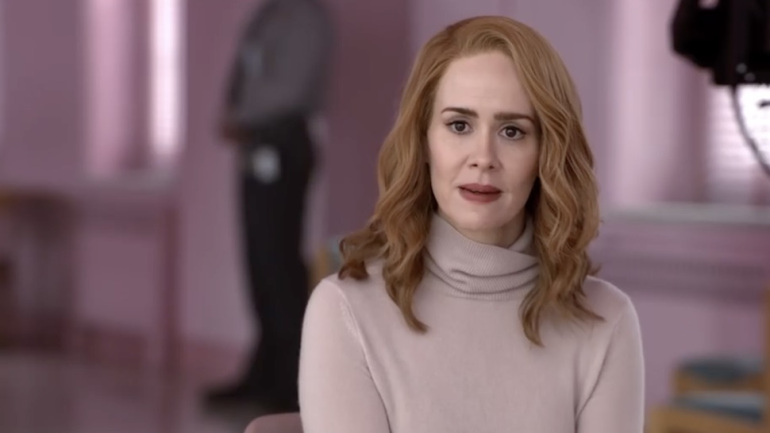
Glass is filled with interesting ideas about our need to make deities of the exceptional, regardless of whether they are good or bad, and the way we often fail to truly acknowledge how trauma shapes our identity. Shyamalan’s approach to disability and mental illness in the franchise, making those with either affliction a killer, has always been somewhat problematic. His attempt to ultimately redeem the men, ignoring their crimes in the process, and make them the real victims never sits well with the lore this franchise has built. Despite these qualms, Mr. Glass and The Horde, (McAvoy gives another brilliant performance in the role), remain compelling characters even when isolated in their individual cells for large sections of the film.
Though his plotting is overstuffed, Shyamalan knows how to keep his action sequences grounded in reality, at least as close as one can get in a film like this, while still being visually captivating. Even in its most ridiculous moments, it is hard not to appreciate some of the risks that Glass takes throughout. Unlike the formula that Marvel and DC employs, this trilogy reminds us that you don’t need massive budgets to make a comic book inspired franchise.
While not as strong as its predecessors, even shattered glass has interesting pieces.
This review appears courtesy of www.cinemaaxis.com.


